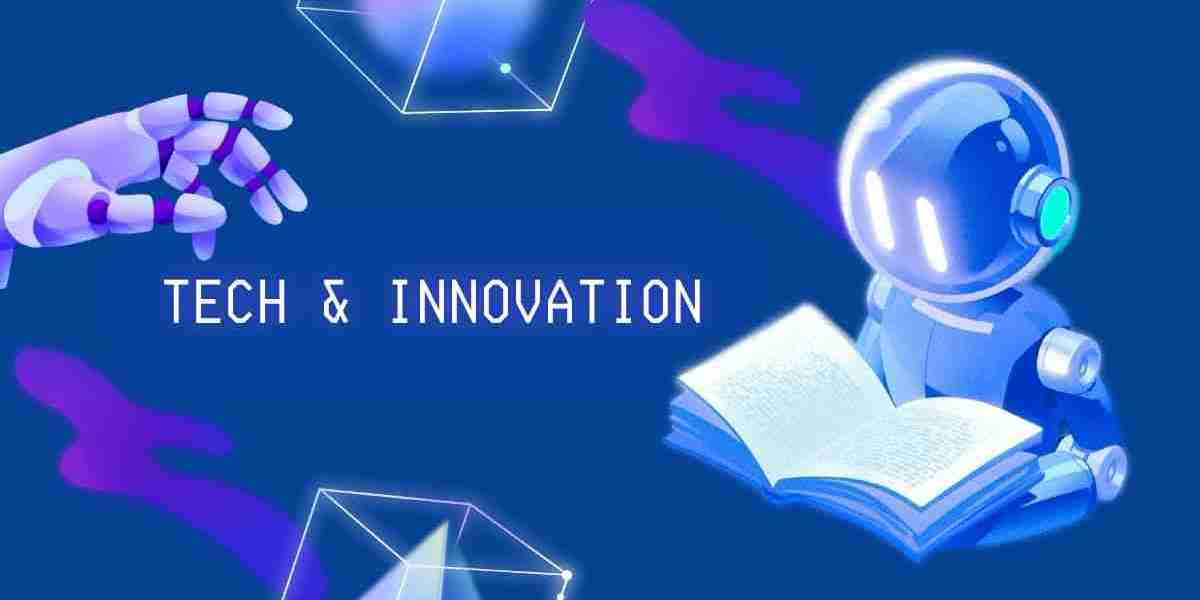1. From Tools to Companions: The Rise of Human-Centered Technology
In the early days, technology was utilitarian. Now, it’s personal. Devices learn our routines, preferences, even our moods. Smartphones aren’t just phones—they're fitness coaches, translators, travel guides, therapists in your pocket. Even apps now feel more intuitive than instruction manuals.
Innovation today is less about invention and more about empathy. We’re designing for real human needs: accessibility for people with disabilities, digital therapy apps for mental wellness, language models that help children learn in remote parts of the world.
We’re building tech that cares.
2. Artificial Intelligence: The Co-Pilot of Human Creativity
There’s a beautiful irony in the fact that machines—once seen as rigid and cold—are now helping humans be more creative.
AI is no longer just crunching numbers. It’s composing music, writing poetry, painting surreal art, assisting in novel writing. Architects are using AI to simulate building designs. Medical researchers use it to map disease patterns and accelerate drug discovery.
But here’s the twist: AI isn’t replacing artists or thinkers. It’s collaborating with them.
Rather than viewing AI as competition, the world is embracing it as a creative companion, one that augments our imagination instead of limiting it.
3. The Green Tech Movement: Sustainability Meets Innovation
Perhaps the most inspiring evolution of technology is its shift towards sustainability. Climate change, once debated, is now a scientific and social reality—and innovation is stepping up.
- Solar panels are becoming cheaper and more efficient.
- Smart agriculture is optimizing water usage and crop health using AI and sensors.
- Electric vehicles are moving from luxury to mainstream.
- Wearable air purifiers, compostable packaging, and AI-powered recycling systems are no longer ideas—they’re active startups.
Green tech isn’t just innovation. It’s innovation with a conscience. A growing reminder that the most futuristic technologies are those that also preserve our future.
4. Healthcare Innovation: Healing Smarter, Not Just Faster
Tech’s impact on healthcare is nothing short of life-saving. Think beyond fitness watches—imagine:
- AI models that predict heart disease before symptoms show.
- Robotic surgeries with precision impossible for the human hand.
- Telemedicine that brings expert care to remote villages.
- 3D-printed organs and prosthetics personalized for every patient.
And yet, perhaps the most profound shift is the democratization of health knowledge. From fertility-tracking apps to digital mental health companions, technology has transformed passive patients into informed participants.
We're not just curing illness—we're redesigning wellness.
5. Space Tech: The Ultimate Innovation Frontier
Once a domain of governments and astronauts, space has become more open and imaginative than ever.
Private companies are designing lunar landers. University students are building nano-satellites. Space tourism, while still niche, is no longer fantasy. Even high schoolers are coding projects for the International Space Station.
But here’s what’s poetic: Our push into outer space is also teaching us about Earth. From climate monitoring to global communication, satellite tech has reconnected us with our own planet more intimately than ever.
6. The Metaverse & Mixed Realities: Reimagining Connection
There’s something surreal about slipping on a headset and attending a concert across the world, or collaborating on a design project with someone in another time zone, in a shared virtual workspace.
Virtual Reality (VR), Augmented Reality (AR), and Mixed Reality (MR) are not just about gaming anymore. They're reshaping education, therapy, architecture, and even how we grieve and remember loved ones.
In a world where loneliness is rampant, these technologies could become portals to connection, imagination, and healing.
7. Education Rewired: Learning in the Age of Innovation
Why memorize facts when information is at your fingertips? The role of education has shifted from rote recall to curiosity, creativity, and critical thinking.
Virtual classrooms, AI-powered tutors, personalized learning paths—education is no longer one-size-fits-all. Kids in remote villages can now learn coding, history, and biology from world-class instructors, all thanks to a stable connection and a curious mind.
Innovation has turned the question from “Where do you study?” to “How do you want to learn?”
8. Ethics in Tech: The Innovation We Often Overlook
With every leap forward comes a deeper responsibility.
Surveillance vs. privacy. Automation vs. employment. Algorithms vs. human judgment.
The ethics of innovation is perhaps the most urgent conversation of our time. It’s not enough to ask what we can build—but what we should.
The future needs inventors, yes. But also philosophers, poets, and critics—those who ensure that our pursuit of what’s possible doesn’t forget what’s meaningful.
Conclusion: The Most Human Thing We’ve Ever Done
Innovation isn’t just about silicon chips and satellite launches. It’s about solving problems, reimagining possibilities, and shaping a world that reflects our best values.
At its heart, technology is a deeply human endeavor. Not because it mimics us, but because it’s born from our minds, guided by our intentions, and shaped by our collective imagination.
We don’t innovate because we want machines to think like us. We innovate because we want the world to work better for us.
And in that spirit, the future isn’t some distant idea. It’s already here—waiting for us to shape it, responsibly and beautifully.









